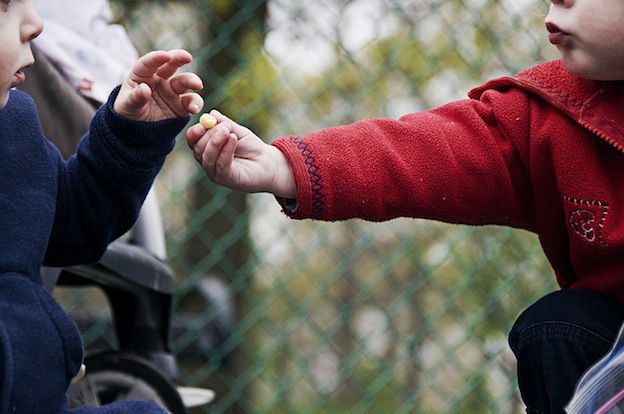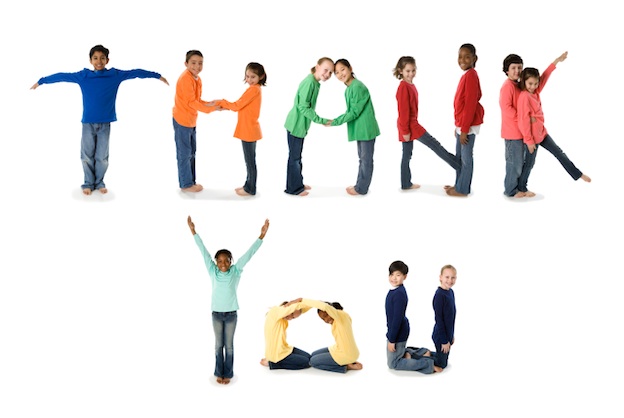SingaporeMotherhood | Baby & Toddler
September 2015
Teaching Manners to Kids aged one to 12 Years

Every parent hopes to have the dream child who impresses everyone with his or her good manners. After all, your child’s behaviour, good or bad, reflects on your parenting skills and more importantly, good manners create the foundation for children to grow into confident adults. Manners also determine the quality of their relationships for a lifetime.
How can we best teach our children the social graces that are expected of them? While we should have age-appropriate expectations, it is really never too early to learn. Let’s break it down.
[banner][/banner]
Toddlers aged 1 to 2 years
These are the years for learning the ‘magic words’. Even though children at this age may not yet understand why saying “please” and “thank you” are important, the idea is to plant these niceties in your child’s vocabulary. Try saying, “Peter, may I have your bowl, please?” and when he complies, emphasise “Thank you, Peter!”
Consistently prompt your child to say those words when asking for something and your toddler will soon realise that saying those words is important because it not only gets him what he wants, but also because daddy and mummy use them all the time and they do so with happy expressions on their faces.
Children are natural parrots and will understand the usefulness of these words long before they understand what they actually mean. Other ‘magic words’ include “You’re welcome”, “I’m sorry”, and “Excuse me please”.
 Image cc licensed (CC BY-SA 2.0) Flickr image by Ben Grey
Image cc licensed (CC BY-SA 2.0) Flickr image by Ben Grey
Preschoolers aged 3 to 6 years
Most children in this age group are in playschool or kindergarten, learning to socialise with others. Young children are naturally ‘me-centred’, especially if they are the only child in the family, so encouraging them to learn these skills at home will stand them in good stead. Role-playing with toys often works well.
Begin with the life skill that is often overlooked – polite introductions. Teach your child to shake hands and say “Hi, my name is …”
Other basic manners children should learn include:
• Sharing – mastering this fine art means they’ll be able to play well with others
• Taking turns – this helps to foster patience and fairness
• No interrupting – a tough-to-learn but important skill that results in a respectful child
Parents often complain when kids fail to listen, but this valuable communication skill can be taught. Look at your child when she is speaking and respond appropriately; prompt her to do the same in return.
Phyllis Chua, a senior environment affairs advisor in her early 40s, says that her son Zhi Cheng used to throw tantrums often when things did not go his way. “Once he lost his temper because he could not quite align the Lego pieces he was playing with.”
Using a calm and measured tone, she would ask him to cool down, often asking him to count to 10 and take deep breaths. “We allow him the space to calm down and afterwards give him the opportunity to let out his feelings, and then we discuss how to deal with it. Ee try to achieve closure for each incident.”
At this age, the teaching of table manners should also be in progress. A three-year-old may not be able to sit still through a meal, but children can start with some basics like chewing with their mouths closed and not putting their feet on the table. By the time they are six years old, they should also be able to use cutlery properly, sit respectfully at the table, and ask politely for a dish or to be excused.
Children aged 7 to 10 years
By the time children enter school, they begin to understand the reasons behind having good manners and are ready for a wider etiquette spectrum. As they develop a sense of empathy, they can be taught to treat others the way they wish to be treated. It is ever more important that parents practise what they preach – give your child the same respect that you demand of him or her.
Children should learn:
• Boundaries – respecting others’ privacy and asking for permission before touching another’s belongings
• Sportsmanship – being a fair-minded team-player
• Leadership skills – letting younger ones shine during sports and games, and humility – accepting help and coaching without getting upset
They should also learn polite phone etiquette, courteous behaviour in public, and how to be a gracious host or guest.
Tweens aged 11 to 12 years
Keeping in mind that all the above manners should be reinforced and inculcated accumulatively, the concept of respect for self and others should come naturally by the time children reach adolescence. Pre-teens will push boundaries more than ever, and a good foundation will make for less problematic teenagers and more successful adults down the road.
Mutual respect is of utmost importance – speak and listen to each other while making eye contact. Rude behavior like rolling eyes and swearing is unacceptable.
Other skills to encourage the development of include punctuality, a sense of volunteerism, kindness towards younger kids and older people, and not discriminating against those who are different, be it race, religion, disability or lifestyle.
If your children make mistakes – and they will – try to correct them calmly and in private.
Eunice Tan, founder of Image Flair Academy of Modern Etiquette and Etiquette Plus Academy, says that “Some parents think that it is enough to require or force children to behave in a certain way but they don’t realise that unless children understand the reasons and benefits behind it, they will find it difficult to comply.”
Mdm Sia, a teacher in her 50s, recalls when her grandson Norman, a highly inquisitive four-year-old who would touch anything that caught his eye, even broke displays in public places in a bid to discover their inner workings. “I decided that I needed to be more alert and hone his curiosity by teaching him to ask questions about things he is interested in. With constant reminders and corrections, he gradually developed the habit of asking permission to touch objects in public places. Since the age of six, Norman enjoys trips to museums and exhibitions and of course, hands-on activities remain his all-time favourite.”
At the end of the day, Eunice adds, “Parents are children’s most important role models. If parents utilise manners and show themselves to be graceful in every situation, their children will follow.” She also reminds parents to “acknowledge and reward courtesy – show children that when you choose respect and kindness, you will usually be treated with the same”.
Featured image: cc licensed (CC BY 2.0) Flickr image by ProFlowers
All content from this article, including images, cannot be reproduced without credits or written permission from SingaporeMotherhood.
Follow us on Facebook, Instagram, and Telegram for the latest article and promotion updates.





